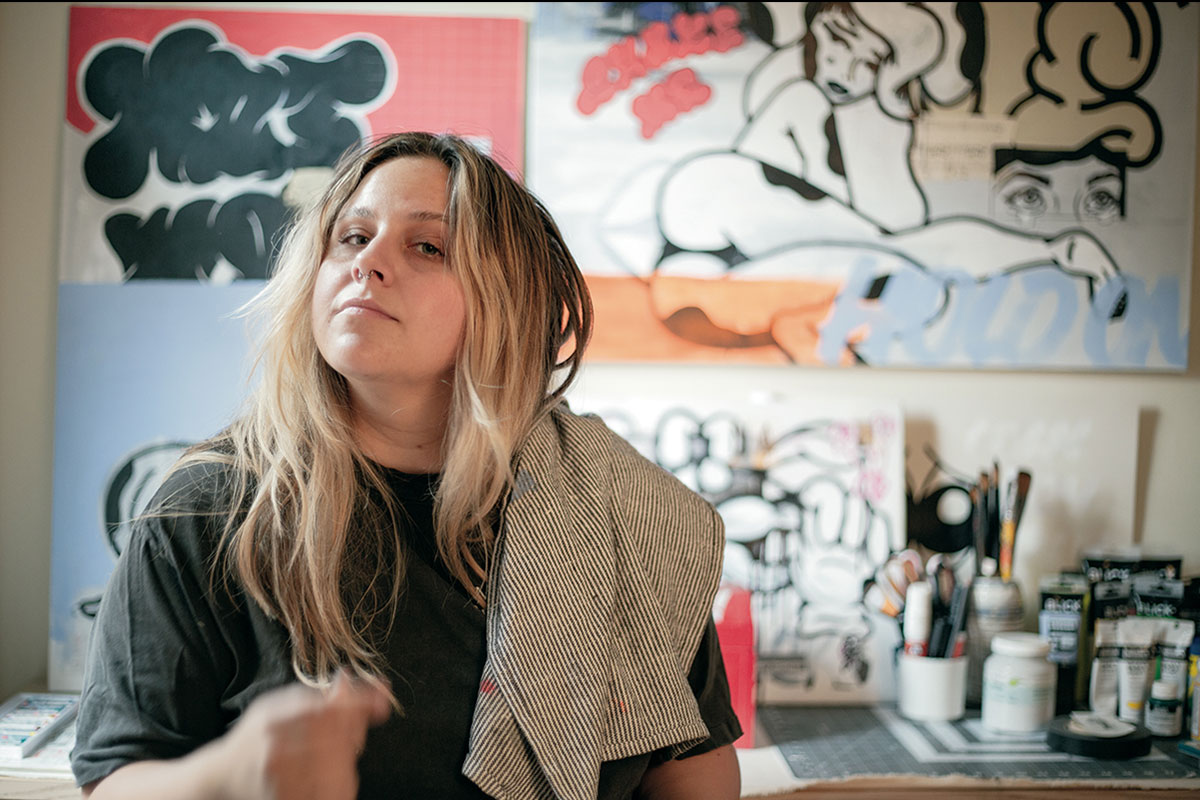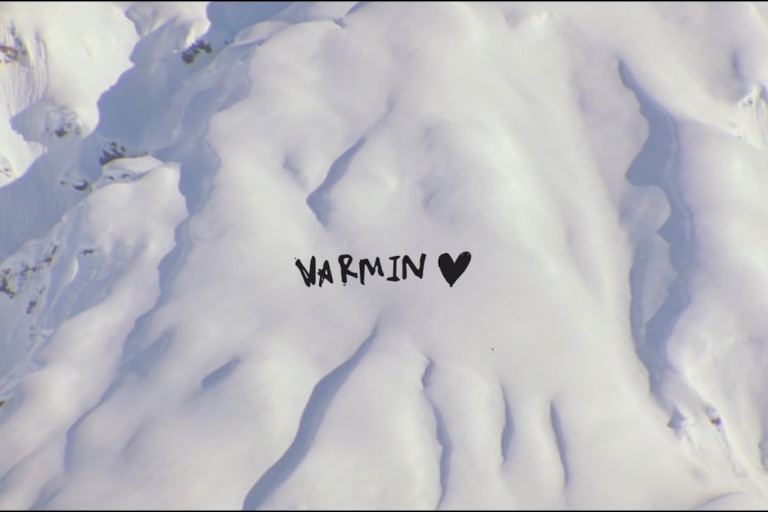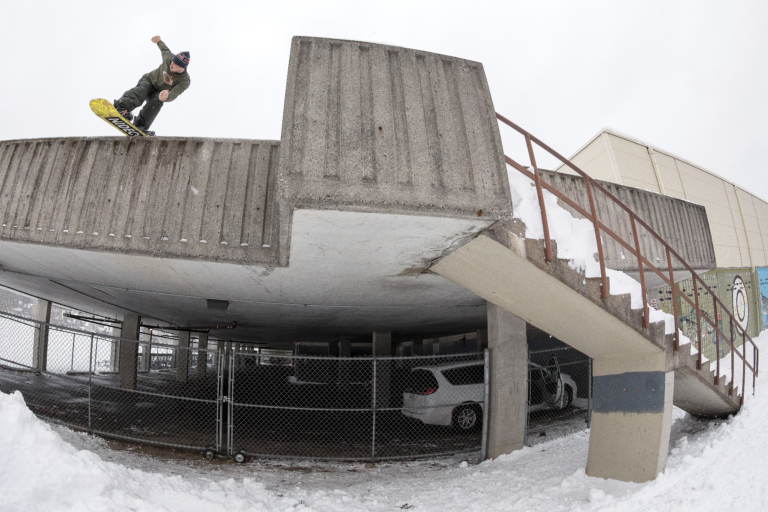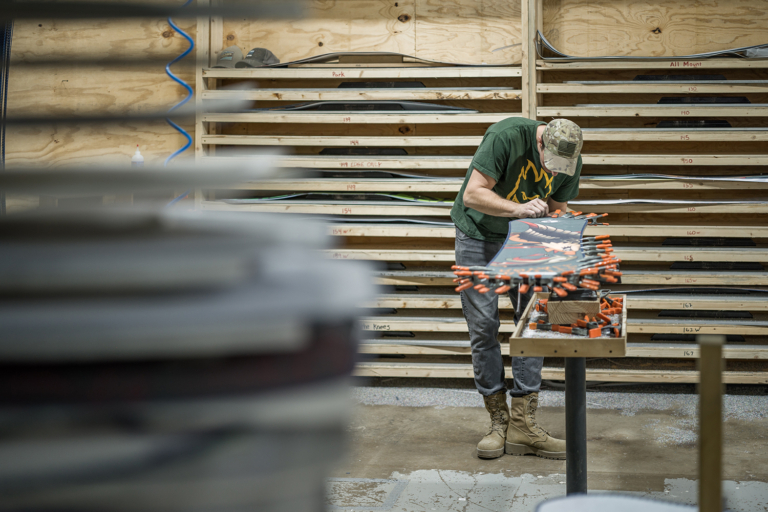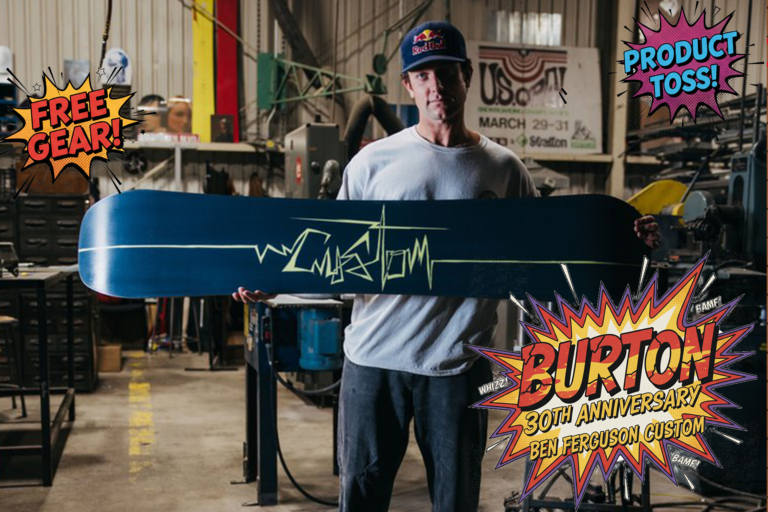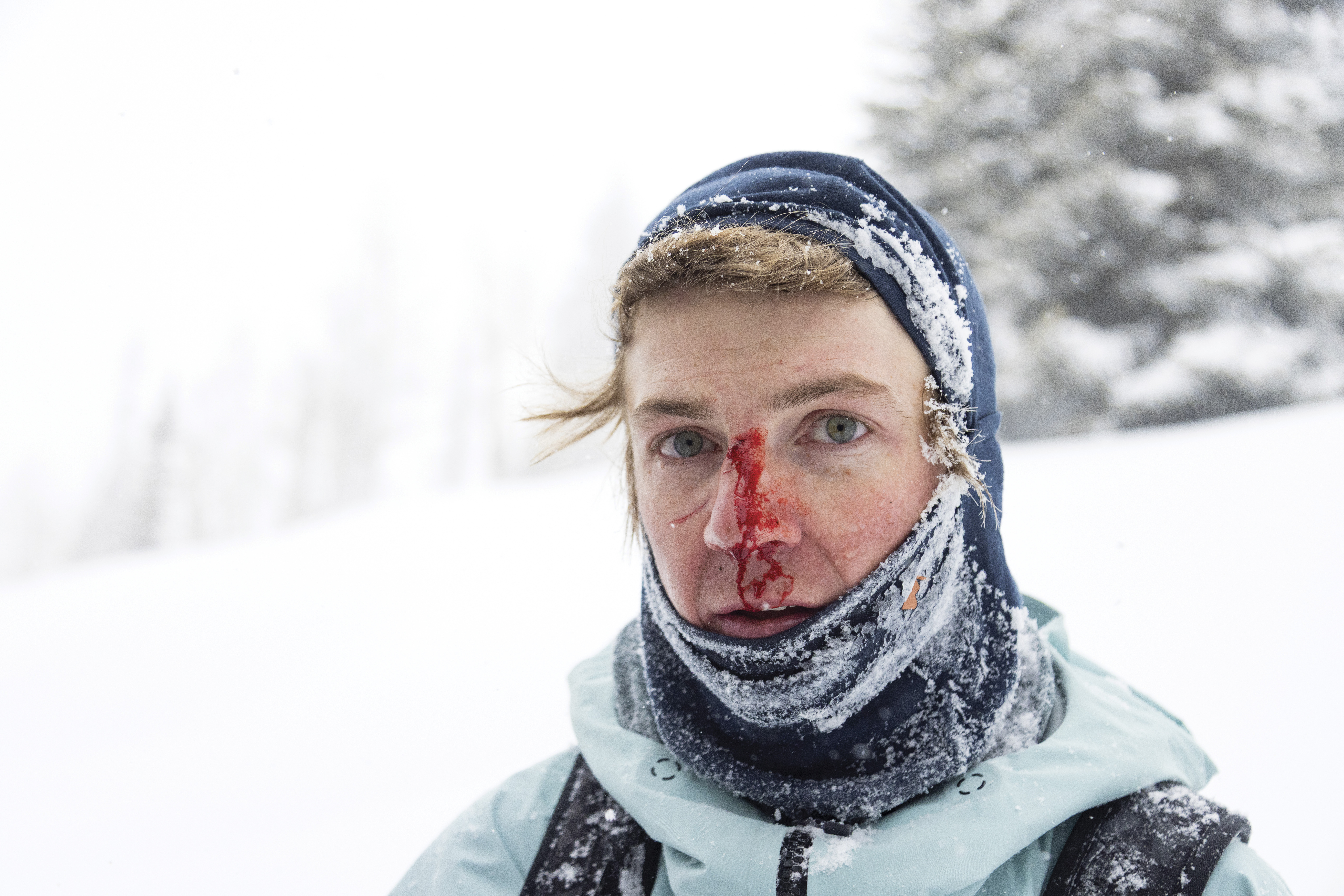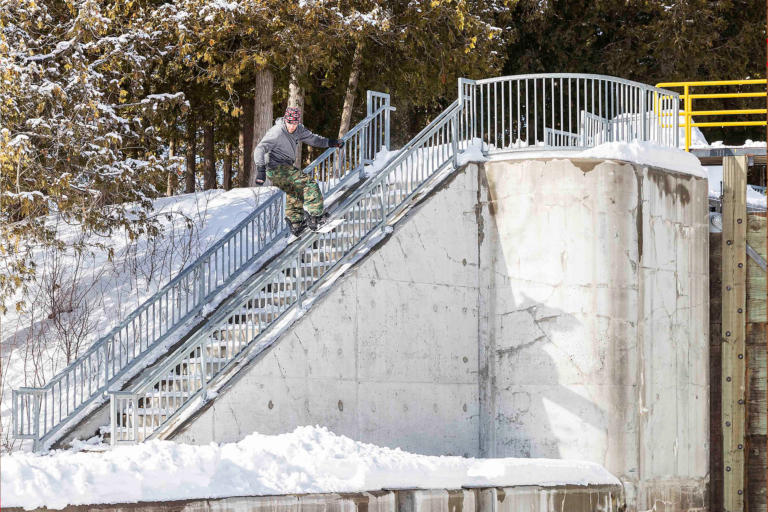Cheyne Brooking is one of my favorite people I have ever met, but we’ve really never hung out. We crossed paths years ago at High Cascade, where her whip-smart sarcasm made me think she was from the East Coast, but she actually grew up in Mammoth Lakes, California. Over the years, I’ve become friends with her over Instagram, really. Cheyne’s story feed is as compelling as they come, filled with humor, commentary, art, photography, vulnerable discussion of mental health, and a caustic humor about everyday happenings. She’s like if David Sedaris was a young woman—and a snowboarder. Of course, Cheyne is also a talented artist. Her creative endeavors are varied—whatever strikes her fancy at the time, though always rooted in painting, drawing, and gorgeous hand-lettering. While Cheyne has always been a snowboarder and an artist, of late the two aspects of her life have been coming together more and more. Her work is on snowboards and in magazines, with new projects to come. Personally, I’m hyped to see Cheyne’s creative musings touching more of snowboarding because her art, like her willingness to share her perspective, is pointed, passionate, and brave. – Mary T. Walsh
Where do you live currently?
I just moved to Portland in May of 2021!
When and how did you get into snowboarding?
My family lived in Encinitas, California around the time I was 3-ish. Hansen’s surf shop had a little felt hill in the back of the parking lot that they’d “teach you” how to ride on. My mom tried taking me there, but when they told her I was too little she decided she was going to take me to Snow Summit her goddam self and strapped me on a lil’ Burton 108 (which she still has) in my baby Sorels. The rest is history.
What was it like growing up in Mammoth?
Absolutely surreal. I had kind of a hard time as a kid. My mom, sister, and I lived in a studio apartment in this run-down place called North Village. There were a number of young guys living in the apartment across the hall, including Joe Carter and Tucker Watson, who fully took me under their wing. Tucker would be at my door at 7 a.m. on powder days, starting when I was 14. I’d shuffle along behind them to the top where they’d tell me to keep up or they’d see me at home later. They taught me to ride hard and fast and with good style. That’s when I fell in love with snowboarding. I was homeschooled so I got to ride almost every day.
Plus, we moved to Mammoth in ’99 right before Grenade took off. I know that as a semi- youngster I’ve missed a lot of golden ages, but I definitely caught the golden age that was Mammoth in the 2000s: Grenade Games, June Mountain, WCI, endless hot laps. It never ended. The energy was intoxicating and it was palpable. Every single day.

Preferred mediums?
I try to bounce around and experiment a lot, but I’ve been having a lot of fun with acrylic paint markers lately.
One tool of your craft that you cannot do without?
My iPad. God bless the iPad.
Do you listen to music or anything when you make art?
Oh, absolutely. Recently it’s been a lot of Mac Miller, Frank Ocean, and other moody, sexy stuff.
What are you currently reading?
I’m reading Hello, I Want To Die, Please Fix Me by Anna Mehler Paperny, a journalist who applies all of her investigative skills towards figuring out her debilitating depression. It’s very raw and very good.
How do other forms of media inspire or influence what you like to do creatively?
Gosh, I’m a very impressionable person, so it’s really easy for any kind of media to take a real hold on me. A song will get me in my feelings or some documentary will get my head spinning. And all of that inspiration kind of emerges in different ways, which I think is why I like to make so many different things.

As a friend of yours on Instagram, I like your stories because they often seem like a collection of things that inspire your art, from fashion to memes, jokes/ inside jokes, body positive portraiture, political information, causes you believe in, etc. Is this the case or am I totally misinterpreting what you’re posting and instead it’s just inspiring me? Ha.
Definitely. There are such nice corners of the internet and I’ve tried hard to keep myself in a kind, sensual, compassionate, and generously cynical spot. The things I’ve seen and learned and the people I’ve met are an endless source of inspiration and relatability.
Related question, what/who/where/etc. inspires you?
My friends and their successes, my family, science, philosophy, relationships, stories, history, the ferry, mountains, feelings, omnipresent existential dread.
Related question number two, how does Instagram function in your life as an artist? Good, bad, both, neither?
Definitely both. Some days it’s impossible not to want to burn everything you’ve ever made while you watch thousands of people outrun you with every swipe of your thumb and your screen turns into a remote graveyard for all of your hopes and dreams. Other days it is a treasure trove of inspiration, a pillar of modern connection, and the funniest show I’ve ever seen.
How did you get into lettering?
It started off just as doodling, but I realized it was a really cathartic way to get things off my chest. I came to love the art and process of sign painting, and the way so many artists implement a sense of irreverence into their lettering.
What other creative projects have you been getting into?
I really want to learn more about printmaking. There are people telling the most unreal stories with such beautiful, experimental printing.
If you had to describe your artistic style in a sentence, like putting yourself in the box of a sentence, what would you say?
Manic pop art for moody people.

Facing creative block is both challenging and at times, inevitable. What do you do when you hit a creative block?
I’m kind of in one as I answer this. My creative blocks are pretty dependent on my mental state. My juices stop flowing when I lose interest in doing things. I try to get out of the house as much as possible, explore new places. I’m realizing that sometimes there’s not much you can do except wait for it to come back to you.
What is the sort of general process you go about when doing something creative, whether lettering, painting, sewing, something else?
It depends on the project and depends on my mood. Sometimes I’ll do weeks of planning and research and drafting and revising and hate it and burn it and then start all over again. Other times I’ll have a fleeting idea and hop up off the couch at 10 p.m. to complete a painting and it’s my favorite thing I’ve ever made.
Where do art and snowboarding intersect for you?
They intersect in so many different ways both literally and figuratively. Both have been a lifelong presence for me and influenced so much of who I am. They’ve both provided safety in self- expression, retreat, and comfort, and I’ve had a strained relationship with both. The ways in which they’re literally intersecting recently has been wild, unexpected, and wonderful.
Speaking of that, in the past few years you have gotten to combine those two things more and more. What else have you been you working on in the snowboard realm?
It continues to be unreal to me that I to get to marry these two parts of my life, and the things I’ve gotten to work on are so special and close to my heart. I’m working with Desiree Melancon on a mental health non-profit called STAY, focusing on mental health in action sports, and I’m just wrapping up a very special board design for a friend that I am very, very proud of.
Do you have an all-time favorite board graphic?
There are so many. I’ve been keeping my mom’s old Avalanche D51 hostage in my house for years because she wants me to paint it, but I can never bring myself to do it because I think it’s so fucking cool.
What sort of things in snowboarding make you excited currently?
I feel like this is such a significant time in the evolution of snowboarding and there are so many things to be excited about. I love watching the queer snowboard community flourish and I’m especially glad to see the increasing transparency and vulnerability surrounding mental illness.
You are very open about your own experience and struggles with depression and mental health, which I find to be really brave, inspiring, and truly helpful for others, in terms of normalizing this subject. You infuse this topic into your art, as well. Could you talk a little about this?
Oh man. When I’m emotionally backed up, sometimes drawing is the only way for me to express myself and get anything out of me. It’s such a cliché, but it’s a cliché because it’s true. On days I feel crazy and I can’t formulate a single tangible thought, maybe I can throw some nonsensical things around a canvas and see if any of that makes me feel better.
I’ve been making some really layered pieces—like a lot of things stacked and glued and painted on top of each other—and it’s been a really cathartic process for me. I get to add things in those layers: fleeting thoughts and feelings, confessions, cravings, whatever. Then maybe it gets totally covered up, or maybe it’s just peeking through the corner, but whatever it is got to be what it was, and seeing that is really special to me.
When you first started making art, whether for enjoyment or professionally, what were some aspects of doing so that you thought were very important that mean less to you now?
I used to implement a lot of order and structure in my lettering and in my designing, especially. I think I’ve gotten a lot more comfortable with breaking the rules and figuring out new ways to create. I’m pretty impatient and learn (or not) almost exclusively by trial and error, so if anything I think there are a lot of things that I didn’t think were important that I know now are very important. Like patience, for one.
